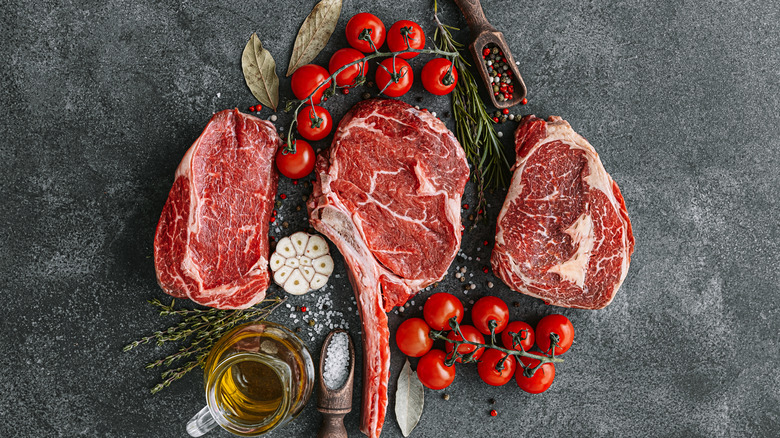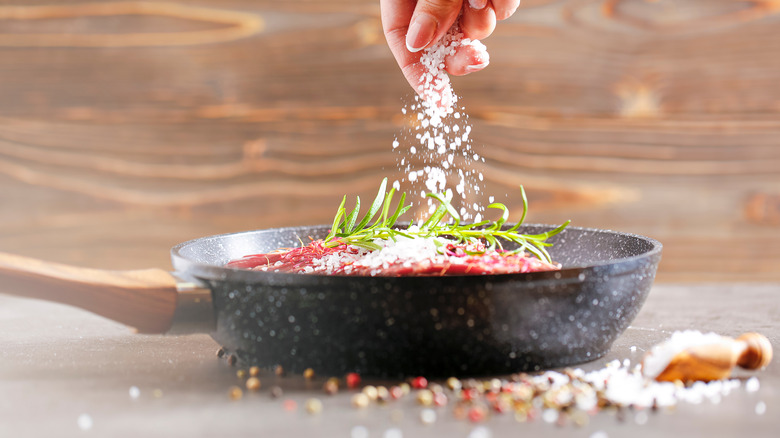Why You Should Always Salt Your Steak Before Cooking
There's no shortage of debates on steaks from ranking steak cuts from best to worst to why searing is (or is not) an effective way to retain the meat's juicy goodness. Most summertime grill champions likely have a story to tell about the ultimate way to achieve the best grill-to-table beef.
Regardless of which type of steak cut you choose, there are always a ton of ways to serve up a savory slab of beef. You could dry-age your steak and then reverse sear it, or you could dry brine it as Jess Pryles recommends. The Daily Meal has myriad suggestions for secrets that steakhouses use to ensure better beef on your plate, including frequent flipping, making butter your best friend, resting to room temperature, and making use of marinades.
Regardless of the method of preparation you choose, or which spices or marinades you might want to slather on your steak, the one truth is that the best way to achieve the most savory steak is to use the simplest of ingredients: salt.
How to salt your steak
J. Kenji López-Alt detailed his experimentation with salting steak on Serious Eats and had some serious parameters for seeking perfection. Salting at several intervals (and then searing), López-Alt tested how to achieve the best steak results with salt. His final answer? Salting before searing beef yields various results, with salting 40 minutes ahead being best, but salting both sides overnight and resting the steak on a rack during that time should bring out the best in your steak.
There may be no one more entertaining to watch salt his food than Salt Bae, but according to Eater, there are reasons to potentially use his technique. Thomas Keller of the French Laundry espouses the appropriate use of salt as an essential skill in cooking and also encourages using it at a distance (like Salt Bae) as opposed to close up.
Regardless of fancy application or timing, the bottom line is that salting your steak before cooking results in a juicy and tender final product (via Lean and Tender Beef). Experiment with timing and method and even salt types, but definitely don't skimp on the salt.

